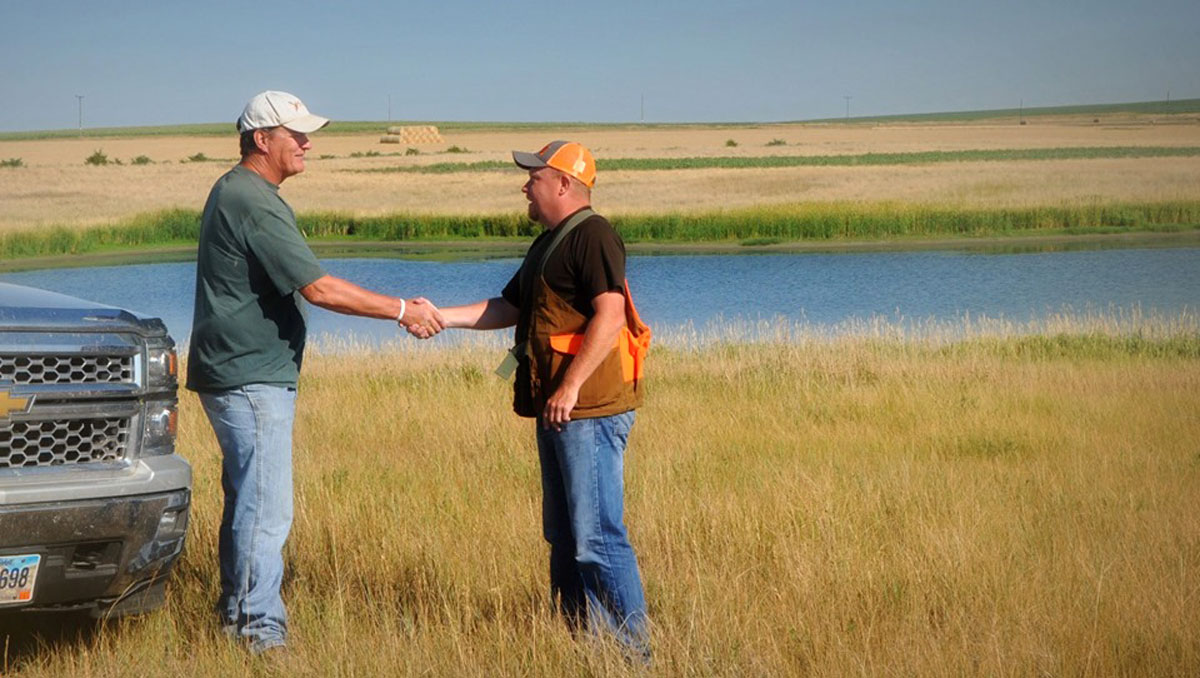Hunting season is underway in many states or will be shortly. Where ever you live, below are some things courtesy Montana Fish, Wildlife and Parks to keep in mind about the importance of being good stewards of the land:
- Standing crop – avoid hunting, walking or driving in fields that have not been harvested yet.
- Littering – not only is littering careless and unsightly, it is against the law. This includes toilet paper, and the proper management of human waste.
- Leave gates as you find them – If a gate is closed, close it behind you. If it is obviously open (pulled all the way back to the fence), leave it open. If you are unsure, contact the landowner or public land agency.
- Know your target and beyond – Hunters must be sure of what they are shooting at (species, sex, etc.), and know what lies beyond their target (houses, outbuildings, livestock, vehicles, other hunters).
- Prevent fires – Be aware of fire danger at all times and use precautions.
- Be weed free – Check clothes, dogs, ATV’s, and vehicles for weeds and weed seeds to help prevent the spread to other private and public lands.
- Avoid driving on muddy roads – Unless it is a well-graveled road, walk.
- Avoid ridge driving and driving to overlooks – Not only is this a poor strategy while hunting, it is considered as driving off road if it is not already an established trail.
- Do not park on roads – Move well off of roads to avoid folks moving farm equipment. Find a designated parking area or an approach that is clearly not being used for equipment.
- Driving off road – While hunting on private property, a person may not drive off established roads or trails without landowner permission. Off-road travel on public land, including game retrieval, is prohibited unless designated as open. Consult appropriate land agency or land maps for specifics.
- Ask for permission to hunt – Montana law requires permission for all hunting on private land. Even if the land is not posted, hunters must have permission from the landowner, lessee, or their agent before hunting on private property.
- Completely fill out Block Management Area (BMA) slips – If a hunter doesn’t correctly fill out a block management slip, they are hunting without permission.
- Know where you are located – Whether you are hunting public land, private land, or land enrolled in an access program such as block management, it is every hunter’s responsibility to know where they are to avoid trespassing. Maps are always available, as are GPS chips and cell phone apps to aid in orientation.
- Accessing public lands – Access to public lands (on a private road) through private land requires permission of the private landowner, lessee, or their agent.
- Camping – camping is allowed on most public lands (see agency regulations), but permission is needed to camp on private property and BMAs.
- Know the rules – Consult BMA maps for specific rules on block management property, including: driving on roads, parking areas, no shooting zones, walk-in only areas, camping, number of hunters allowed, game retrieval, etc. Rules for most land agencies can be found on maps and/or on brochures. Go to the appropriate agency website or local office for information.
- Report violations – report any hunting and fishing, trespassing, vandalism, or other criminal activity to your state wildlife agency
(Photo source: Montana Fish, Wildlife and Parks)
